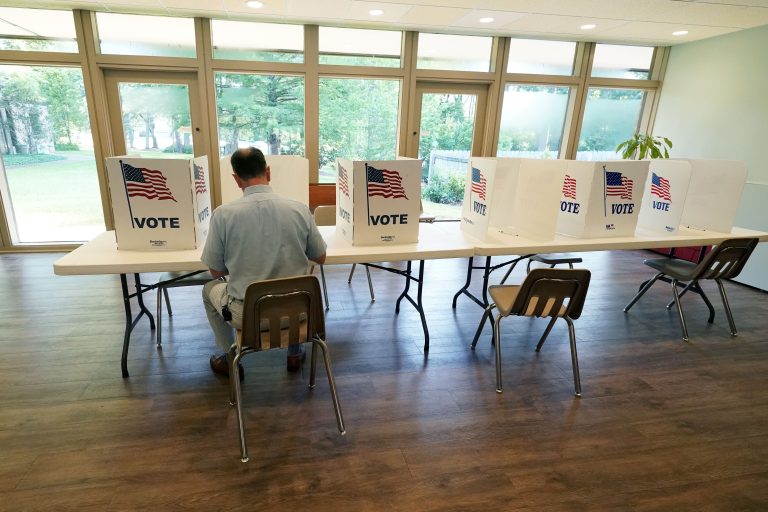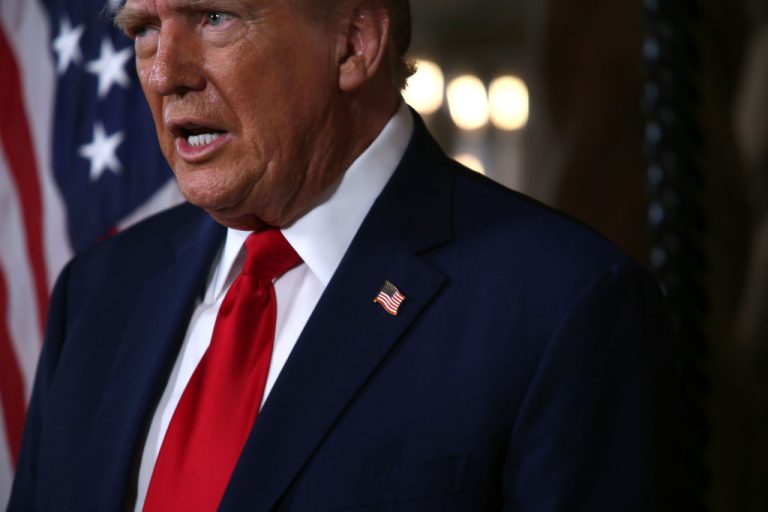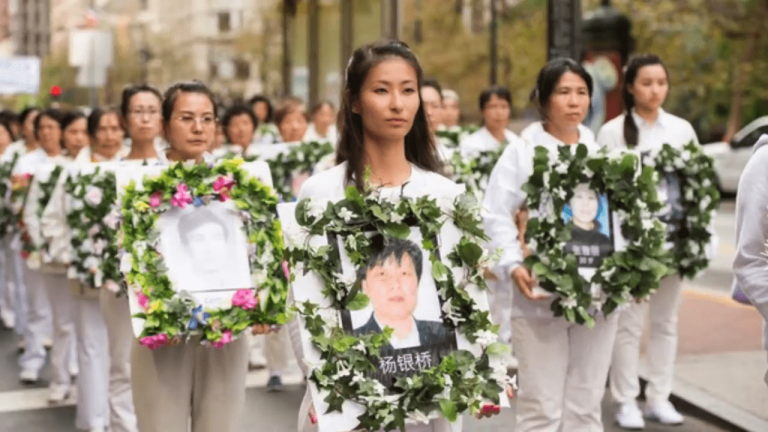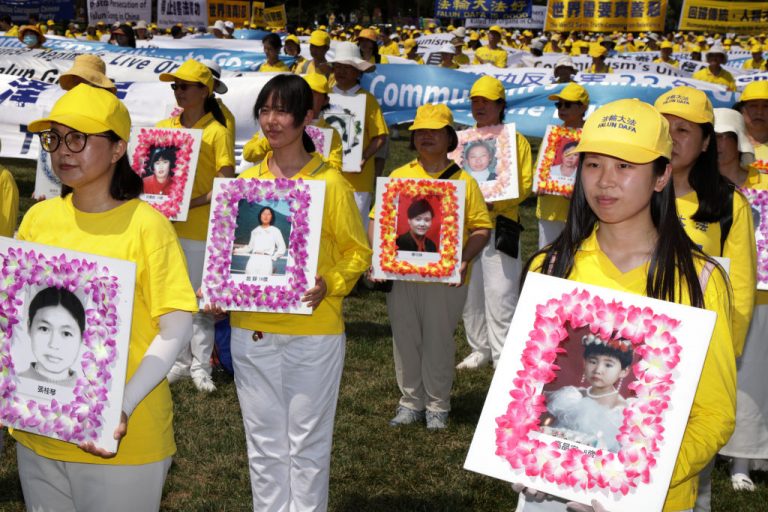WASHINGTON (AP) — A political shift is beginning to take hold across the U.S. as tens of thousands of suburban voters who helped fuel the Democratic Party’s gains in recent years are becoming Republicans.
Across 31 states, about two-thirds of voters who have switched their official party registrations in the past year have switched to the Republican Party, according to voter registration data analyzed by The Associated Press. The phenomenon is playing out in virtually every region of the country — Democratic and Republican states along with cities and small towns — in the period since President Joe Biden replaced former President Donald Trump.
Nowhere is the shift more pronounced — and dangerous for Democrats — than in the suburbs. Over the last year, far more people are switching to the GOP across suburban counties from Denver to Pittsburgh. Republicans also gained ground in counties around medium-size cities such as Harrisburg, Pennsylvania; Raleigh, North Carolina; and Des Moines, Iowa.
Ben Smith, who lives in suburban Larimer County, Colorado, north of Denver, said he reluctantly registered as a Republican earlier in the year after becoming increasingly concerned about the Democrats’ support in some localities for mandatory COVID-19 vaccines, the party’s inability to quell violent crime and its frequent focus on racial justice.
“It’s more so a rejection of the left than embracing the right,” said Smith, a 37-year-old professional counselor whose transition away from the Democratic Party began five or six years ago when he registered as a libertarian.
Success
You are now signed up for our newsletter
Success
Check your email to complete sign up
The AP examined data from the 31 states in which voters explicitly register by political party and which make that information available to the public. Across those states, nearly 680,000 voters changed their registrations in the past year, according to L2, a political data firm.
While party switching is not uncommon, the data shows a definite reversal from the period while Trump was in office, when Democrats enjoyed a slight edge in the number of party switchers nationwide.
But over the last year, about 430,000 voters in those states shifted to the Republican Party, compared with about 240,000 who became Democrats. In another 12 states — including the electoral battlegrounds of Texas, Ohio and Virginia — L2 estimates each voter’s party affiliation using records of voting in primary elections or statistical modeling. Those estimates, based on information such as demographics, local voting patterns and registered voter surveys, suggest that the same pattern is playing out in these states, too, with roughly two-thirds of voters whose affiliations changed in the past year moving toward the Republican Party.
The migration of hundreds of thousands of voters, a small portion of the overall U.S. electorate, does not ensure widespread Republican success in the November midterm elections, which will determine control of Congress and dozens of governorships. Democrats are hoping the Supreme Court’s decision earlier this summer to overrule Roe v. Wade will energize supporters, particularly in the suburbs, ahead of the midterms.
Still, the details about party switchers present a warning for Democrats who were already concerned about the macro effects shaping the political landscape this fall.
Roughly four months before Election Day, Democrats have no clear strategy to address Biden’s weak popularity and voters’ overwhelming fear that the country is headed in the wrong direction with their party in charge. And while Republicans have offered few policy solutions of their own, the GOP has been working effectively to capitalize on the Democrats’ shortcomings.
Republicans benefited last year as suburban parents grew increasingly frustrated by prolonged pandemic-related school closures. And as inflation intensified more recently, the Republican National Committee has been hosting voter registration events at gas stations in suburban areas across swing states like Arizona, Michigan, Nevada and Pennsylvania to link the Biden administration to record-high gas prices. The GOP has also linked the Democratic president to an ongoing baby formula shortage.
“Biden and Democrats are woefully out of touch with the American people, and that’s why voters are flocking to the Republican Party in droves,” RNC Chair Ronna McDaniel told the AP. She predicted that “American suburbs will trend red for cycles to come” because of “Biden’s gas hike, the open border crisis, baby formula shortage and rising crime.”
Democratic National Committee Chair Jaime Harrison insisted the party isn’t “taking anything for granted.”
“That’s why we’re making historic investments in the midterm elections, including in voter registration, and will continue to remind voters across the country of the contrast between Democrats and the MAGA Republican Party that is pushing a national abortion ban with no exceptions for rape or incest, put forward plans that could raise taxes and gut Social Security and Medicare, and is doing everything they can to stand in the way of lowering costs for American families,” Harrison said in a statement.
By Steve Peoples and Aaron Kessler, Associated Press. Article has been edited for length.













